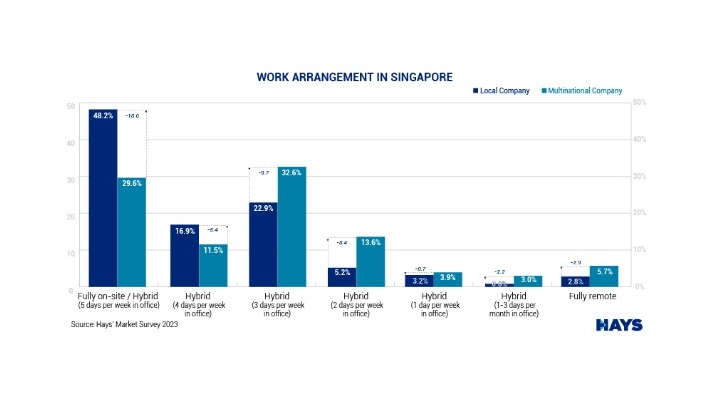 Chart from Hays
Chart from Hays
MNCs offer more flexible working days than local companies: Hays
Only two in 10 MNCs require their workers to report five days a week in the office.
Employees at multinational corporations enjoy greater flexibility in their working days compared to their counterparts at local firms, Hays has found.
Hays reported that only 48.2% of local companies require their workers to report five days a week in the office, whilst only 29.6% of MNCs do the same.
More MNCs also have a 3-day (32.6%) and 2-day (13.6%) on-site work arrangement compared to local companies (22.9%, 5.2%).
“When crafting a compelling employee value proposition or engaging in discussions about flexible working arrangements to attract and retain valuable candidates, it's vital to consider factors beyond just offering flexible working options,” said John Borneman, Regional Director, Hays Singapore.
“Supportive managers and career growth potential are also important for candidates in Singapore who seek connections they can trust and opportunities for career development,” Borneman said.
























 Advertise
Advertise










